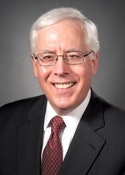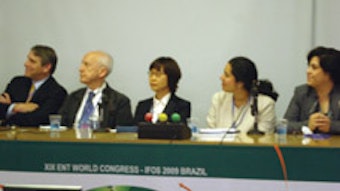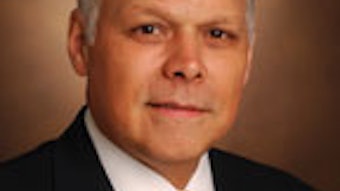How Doctors Can ‘Follow the Money’ as Finance Committee Members
David R. Edelstein, MD Chair, BOG Socioeconomic Grassroots Committee I wake at 5 am and read “Money and Investing” in the Wall Street Journal, which my family affectionately calls the “Monkey Business” section since there are so many financiers being indicted, agencies being rebuked, and businesses in trouble. Like physicians, financiers have their own language, using terms such as FASB, GAAP, and depreciation,* with which physicians need to become familiar if we are to be effective in helping to influence the financial policies of our hospitals. For years, doctors did not want to talk about money for fear that it would taint their work, but with the money available for hospitals decreasing, we better overcome our hesitation. In my September 2012 Bulletin article, “How to be a Better Hospital Board Member,” I highlighted that to be an effective medical leader you need to go to the finance committee (FC) to “follow the money.” I cannot overemphasize this, since most hospital financial decisions are already determined at the FC long before the governing body meets. The money available will determine your hospital’s strategic plan, equipment investment, physician compensation, and development of new programs. In other words, by the time most doctors arrive at board meetings, these decisions have been made. Since many FCs meet without physicians, one could ask, “How do non-doctors make good decisions regarding funding patient care?” If the answer scares you, it should. Finance committees generally meet once a month. A good FC report is circulated at least 24 hours in advance and includes: Balance Sheet—gives assets and liabilities and indicates if the hospital is growing/shrinking. Cash Flow Statement (CFS)—includes patient accounts receivables, pledges, inventories, bond costs, and vested benefits. The CFS is critical since no business should go bankrupt with money in the bank. Operating Indicators—presents monthly and year-to-date inpatient/outpatient volumes, surgeries, case mix indicators, staffing levels, expenses per weighted patient days, and other ratios such as days in account receivables, the debt/service coverage, and risk contract gains/losses. Audit Committee Report—discusses the accountant’s review of the hospital “books” and conflicts of interest. Investment Committee Report—outlines the hospital’s investment strategy. If there are special investments (hedge funds), a comparison report and a risk analysis is recommended. The problem with most hospital FCs is that there can be hidden problems. First, losses may cause a “who shall live and who shall die” choice for doctors. Second, doctors do not understand that there can be positive cash flow, but negative operating results caused by the institution using up the plant/equipment (depreciation) for daily use and not reinvesting in replacing old equipment/facilities. Third, nonprofit accounting is different from corporate accounting according to GAAP. For example, a pledged gift can be listed as an immediate asset even though the money has not been received—making assets appear larger than they are in reality. Fourth, most doctors are never given the management report from the independent accountants. This report gives an honest opinion about how the hospital is really doing and how it is managed. Most administrators would rather pull their teeth than allow doctors to read it; however, physician board members are entitled to see it. If your hospital does not have doctors on the FC or audit committee then be prepared for potentially serious problems. Edelstein’s Rules for How to Be a Better Finance Committee Member Doctors need to be on the FC and understand business (most chairpersons are not chosen for their financial acumen). Have 100 percent attendance. Get the FC handouts at least 24 hours in advance and read them—carefully. Find a friend in accounting or finance to call upon if you do not understand something. Insist that there are physicians on the audit committees. Most administrators will resist, since this is where stark reality and the management letter is discussed. Be sure that the investments are reasonable and low risk. Alternative investments can be rewarding, but have higher risk and less liquidity. Perpetually inquire about indicators and their meaning. Ask about contracts with insurance companies and vendors. Hospitals have huge inventories and are you sure they are controlled? Ask to see the conflict of interest documents. You may be surprised. Ask questions when you do not understand and wait for answers.
David R. Edelstein, MD
Chair, BOG Socioeconomic Grassroots Committee

In my September 2012 Bulletin article, “How to be a Better Hospital Board Member,” I highlighted that to be an effective medical leader you need to go to the finance committee (FC) to “follow the money.” I cannot overemphasize this, since most hospital financial decisions are already determined at the FC long before the governing body meets. The money available will determine your hospital’s strategic plan, equipment investment, physician compensation, and development of new programs. In other words, by the time most doctors arrive at board meetings, these decisions have been made. Since many FCs meet without physicians, one could ask, “How do non-doctors make good decisions regarding funding patient care?” If the answer scares you, it should.
Finance committees generally meet once a month. A good FC report is circulated at least 24 hours in advance and includes:
- Balance Sheet—gives assets and liabilities and indicates if the hospital is growing/shrinking.
- Cash Flow Statement (CFS)—includes patient accounts receivables, pledges, inventories, bond costs, and vested benefits. The CFS is critical since no business should go bankrupt with money in the bank.
- Operating Indicators—presents monthly and year-to-date inpatient/outpatient volumes, surgeries, case mix indicators, staffing levels, expenses per weighted patient days, and other ratios such as days in account receivables, the debt/service coverage, and risk contract gains/losses.
- Audit Committee Report—discusses the accountant’s review of the hospital “books” and conflicts of interest.
- Investment Committee Report—outlines the hospital’s investment strategy. If there are special investments (hedge funds), a comparison report and a risk analysis is recommended.
The problem with most hospital FCs is that there can be hidden problems. First, losses may cause a “who shall live and who shall die” choice for doctors. Second, doctors do not understand that there can be positive cash flow, but negative operating results caused by the institution using up the plant/equipment (depreciation) for daily use and not reinvesting in replacing old equipment/facilities. Third, nonprofit accounting is different from corporate accounting according to GAAP. For example, a pledged gift can be listed as an immediate asset even though the money has not been received—making assets appear larger than they are in reality. Fourth, most doctors are never given the management report from the independent accountants. This report gives an honest opinion about how the hospital is really doing and how it is managed. Most administrators would rather pull their teeth than allow doctors to read it; however, physician board members are entitled to see it. If your hospital does not have doctors on the FC or audit committee then be prepared for potentially serious problems.
Edelstein’s Rules for How to Be a Better Finance Committee Member
- Doctors need to be on the FC and understand business (most chairpersons are not chosen for their financial acumen).
- Have 100 percent attendance.
- Get the FC handouts at least 24 hours in advance and read them—carefully.
- Find a friend in accounting or finance to call upon if you do not understand something.
- Insist that there are physicians on the audit committees. Most administrators will resist, since this is where stark reality and the management letter is discussed.
- Be sure that the investments are reasonable and low risk. Alternative investments can be rewarding, but have higher risk and less liquidity.
- Perpetually inquire about indicators and their meaning.
- Ask about contracts with insurance companies and vendors. Hospitals have huge inventories and are you sure they are controlled?
- Ask to see the conflict of interest documents. You may be surprised.
- Ask questions when you do not understand and wait for answers.













